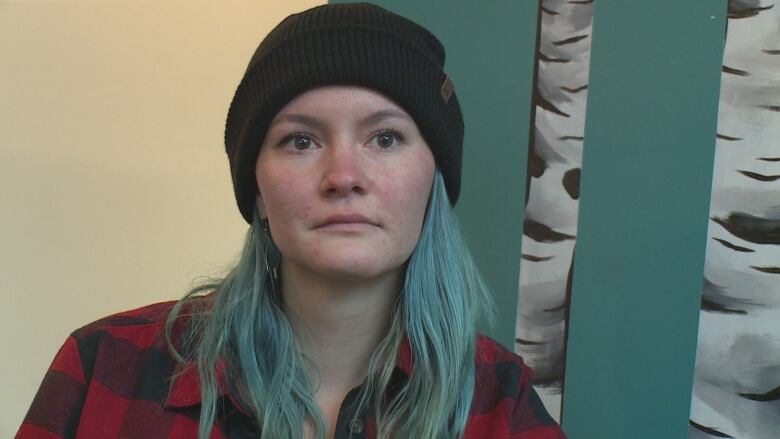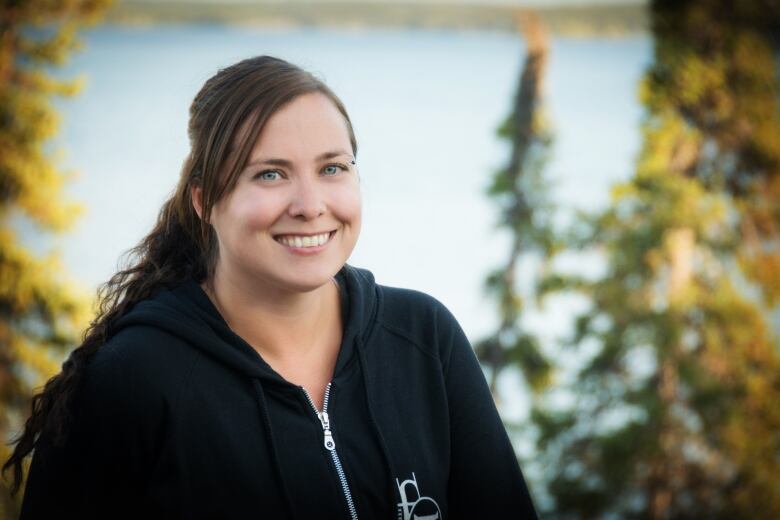#Metoo campaign can be triggering for victims, say N.W.T. women
'It's important to not force people to discuss what they're not ready for,' says Sadetlo Scott

A global campaign to raise awareness about sexual assault and sexual harassment has had a triggering effect on some women in the Northwest Territories.
Women around the world have been sharing two words on social media "me too" to give people a sense of the magnitude of the problem.
Sadetlo Scott, a Tlicho woman from Yellowknife, says she is both "pissed off" and "really sad" about the campaign, which she says can isolate people.
"I have very few people that I disclosed what I have gone through," she said, with tears in her brown eyes.
"But those people who know, they're there for me 100 per cent."
The 27-year-old says her friends are also upset that #metoo is "something that needs to be said so that other people can be aware of the situation."
"It's important to not force people to discuss what they're not ready for. They may not be safe, they may not feel safe,"she says.
In a Facebook post, Scott had a message for other women: "I'm sorry that your social media feed is filling up with all these triggering me toos ... triggering feelings of guilt and fear."
-
'Hide everything': Report finds silence prevails in N.W.T. sexual assaults
-
N.W.T. RCMP blame data entry mistake on high number of unfounded sexual assault complaints
According to Statistics Canada, in 2016 the rate of sexual assaults was five times higher in the N.W.T. than the national average. A recent study also found that many women and men in the territory are also discouraged to talk. In the territory, almost 19 per cent of sexual assaults complaints received by the RCMP between 2010 and 2015 were declared "unfounded."

Although Scott believes it's important to discuss this issue in the North, because of residential schools and intergenerational trauma, she says healing has to come first.
"We have such a huge population of Indigenous people that are suffering and have no means to heal. There are very few resources for people who are going through that."
'Brave and inspiring'
Hiedi Yardley, a psychologist working in Hay River and Yellowknife, says this type of public awareness can be helpful.
"We have rates of one in three women that have been through sexual assault," she says.
But Yardley says details being shared on social media can also be problematic, especially for people with post traumatic stress disorder, and because in the North, everybody knows everybody. Yardley believes it mightbring up "situations that are not helpful" in smaller communities.

"[Me too] could be seen by your boss, by your family members, who may actually have an idea of the person who did that assault."
Yardley suggests one way to prevent being triggered is to avoid social media news feeds.
Candice Lys, founder of FOXY and SMASH, two organizations teaching sexual and mental health to girls and boys in the N.W.T, says she finds the metoocampaign "brave and inspiring."
With SMASH, male role models discuss with young men how "toxic masculinity" can influence them. Lys says many of her male friends are now trying to find a plan to move forward. She says the best thing to do is to believe survivors and "respect those who aren't ready to share their story."
In the N.W.T., people who are experiencing trauma can call a confidential help line 24/7 at 1-800-661-0844.












_(720p).jpg)


 OFFICIAL HD MUSIC VIDEO.jpg)
.jpg)



























































































